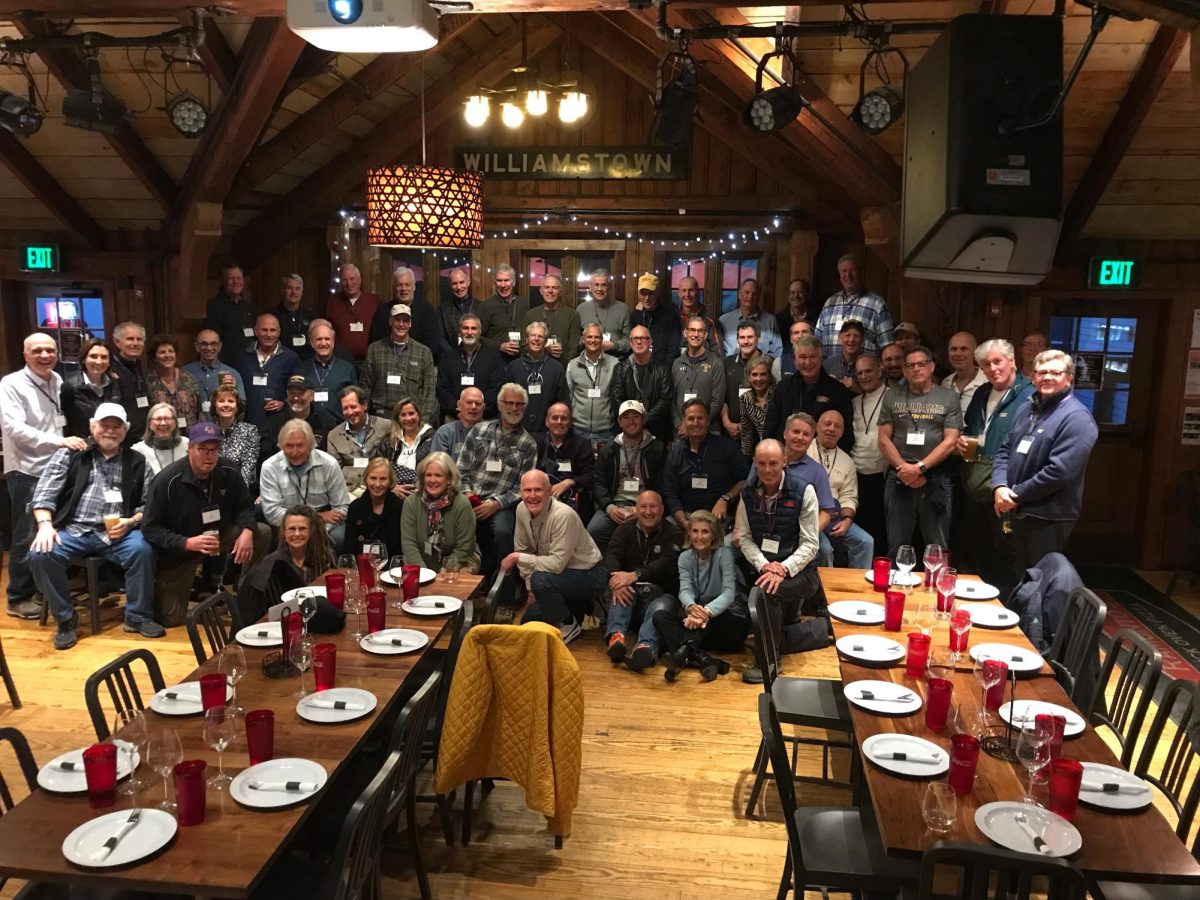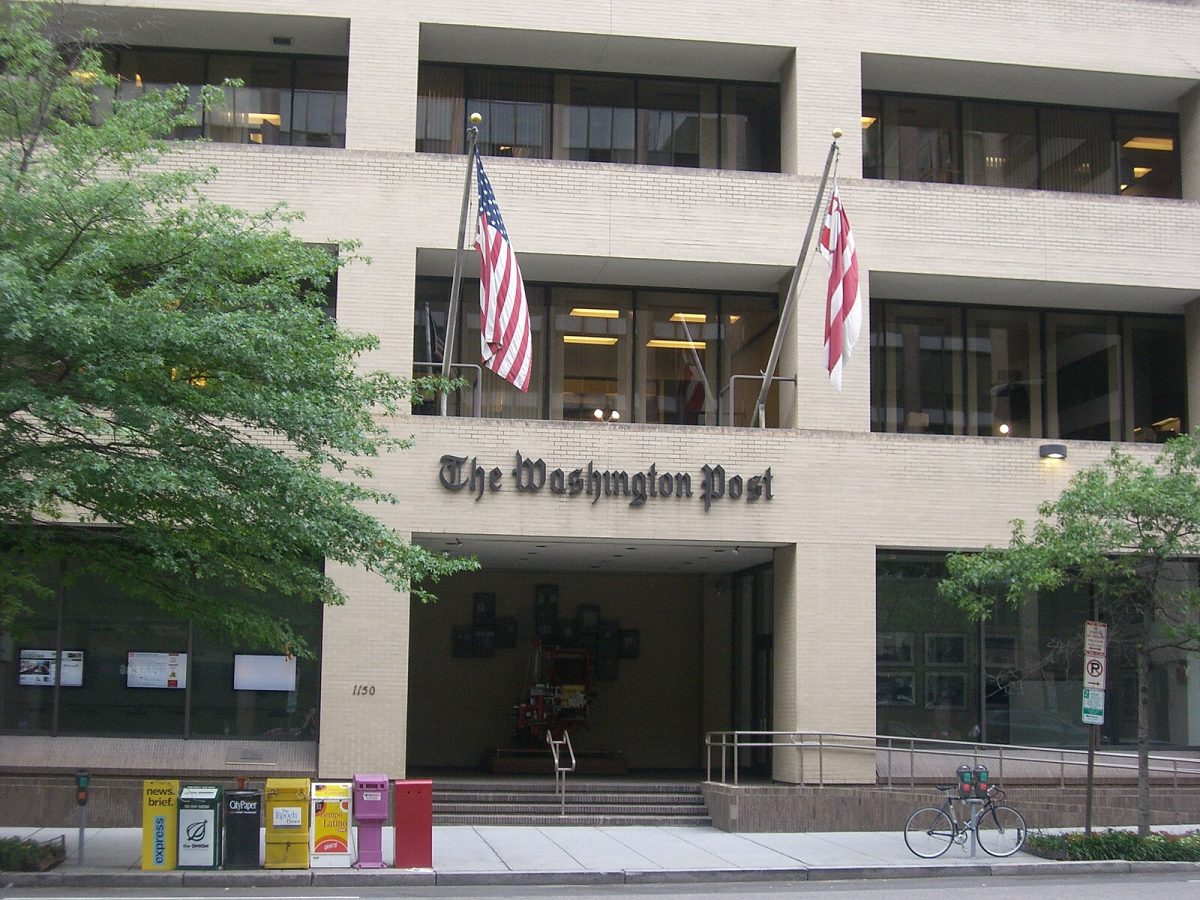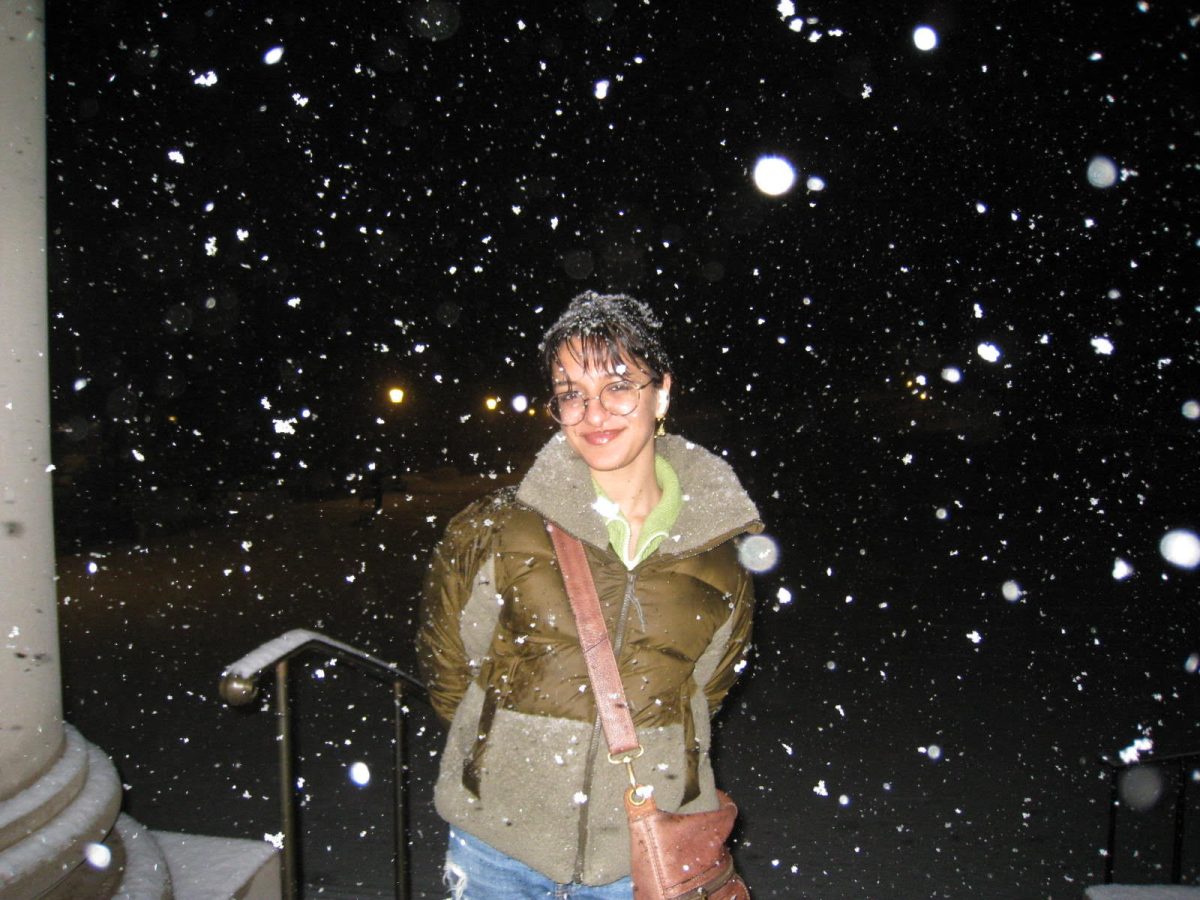
Whether we realize it or not, we are all currently living through a potentially transformational historical event. While it is difficult to gauge the future significance of the COVID-19 pandemic, a few history professors at the College are already thinking about how it will change the course of history.
Professor of History Scott Wong likened the COVID-19 pandemic to the 1918 flu pandemic, as did his colleague, Professor of History Chris Waters. “It [was] a huge, huge pandemic, which led to an enormous number of deaths,” Waters said.
Professor of History Magnús Bernhardsson has been discussing the COVID-19 pandemic in one of his classes, HIST 211: “Understanding 9/11 and the War in Iraq,” which focuses on 9/11 and the resulting War on Terror and growth of American fear.
“We’ve been comparing this current moment to other sorts of wartime situations to see to what extent this is similar to that, and right now, we are seeing … [that] this is similar to the pandemic of 1918 … coupled with the Great Depression and 9/11 sort of as a major historical event,” Bernhardsson said.
During the first class meeting of this course, Bernhardsson asked his students what the most important historical event in their lifetime was, and while many said 9/11, he said he thinks that some of those students might now change their answer to the COVID-19 pandemic.
He believes that living through COVID-19 will change the way that many students think about history. “I think the students will find it, maybe, easier to assess those historical trends and sort of emphasize and sympathize with the fear and the confusion that people felt after a very confusing and dramatic event,” he said.
Wong, who teaches Asian American history, tied current anti-Asian sentiment due to COVID-19 to a long history of xenophobia and the relationship between immigrants and disease. “Throughout American history, there has been this fear of foreigners. We all came from somewhere else, but we do have a xenophobic past and a xenophobic present, and ever since the beginning of colonization, there has been this fear that foreigners bring diseases,” he said. “Asians, too, have been stereotyped throughout American history as carrying diseases.”
In an interview on the podcast “Japan on the Record” in March, Professor of History Eiko Maruko Siniawer spoke about the “Toilet Paper Scare” of 1973 in Japan, in which a shortage of toilet paper set off mass panic, and its similarities to current events all over the world. Much like the current pandemic, the scare highlights the fragility of everyday life and the societal need for security in a time when the future is unclear.
“I think the Toilet Paper Scare was an expression, or kind of reflection, of concerns about the moment; economic gains and middle-class lifestyles that had been so hard-won over the past decade or so seemed to be under unprecedented threat,” Siniawer said on the podcast. “It was really the kind of high prices … and the oil shock that made all of this very concrete and immediate and real in day-to-day life. In the present day … it’s the coronavirus outbreak that’s the most kind of concrete threat and expression of the unknown and uncertainty and unclear risk.”
Though it’s impossible to know when or how the current pandemic will subside, some professors are already thinking about how it will be taught in future history classes. The continual relationship between immigrants and disease is an idea that Wong is planning on incorporating into his course material next fall, recognizing the rise of xenophobia due to COVID-19 in the U.S. He plans on using the book, Silent Travelers: Germs, Genes, and the Immigrant Menace by Alan M. Kraut, which addresses diseases that various immigrant groups throughout American history have been associated with, in one of his classes.
Professor of History Karen Merrill also said she plans on incorporating COVID-19 into her curricula for future history courses.
“I undoubtedly will [teach it], in no small part because we – students and teachers – are being transformed by this experience, and our experiences are going to change very dramatically how we look at the past,” Merrill said. “But I don’t know yet how specifically I’m going to change my course material.”
Bernhardsson also said he strongly believes that the COVID-19 pandemic will prove to be historically significant.
“This is a major event that will dramatically impact our economy, our society, our politics, our infrastructure, our healthcare system, and so definitely, COVID-19 will be taught in future history classes,” he said. “I think it will be seen as a major disruption as it is proving to be, and therefore it will be … an event that will be taught alongside … the Great Depression, World War One, World War Two, the Vietnam War and other major large-scale societal events.”
Wong believes that COVID-19 will not only be taught in future history classes but in other departments as well. “I think people in public health will certainly be teaching it in certain ways,” he said. “It’s possible that in psych[ology], people will talk about the mental-health impact of social isolation or physical distancing.”
Merrill said she predicts that the current pandemic will affect multiple fields of study as well as the research being done in those fields.
“I don’t think there’s any way you could overestimate its impact across academic fields,” she said. “One thing it will do, I think, is open up all sorts of new questions and shift priorities within academic fields about where research should be happening.”
Bernhardsson said he thinks that COVID-19 will be taught across all three of the academic divisions, and put an emphasis on the science and data regarding the pandemic. “I can see how this will drive trust in biology and geology and environmentalism, for example, and how people are more eager to have information, to have knowledge, to have data drive this analysis as opposed to politics and the politicians,” he said.
But Waters said he is unsure of how much the COVID-19 pandemic will be emphasized in the future, based on what he sees as historians’ lack of attention to the 1918 flu. “[The 1918 flu was] not something that necessarily enters the history books except in a footnote or two, but all of a sudden, because we are facing something similar to it, suddenly it’s in the news again,” he said. “It’s quite interesting to see how immediately the news media is connecting this back to or looking for lessons from earlier pandemics like this.”
Waters’ approach to seeing the future significance of this pandemic is to wait until it has run its course so we can truly observe its effects on the world. He believes the most important part about any historical event is its long-term consequences. “I think it will depend very much on how it changes things, and whether it changes individual attitudes towards … socializing in restaurants, whether it affects the economy in really significant ways … what effects it will have on politics,” he said. “I think that is really something that we just don’t know at the moment.”
Though there has been a rise of racism and scapegoating during the COVID-19 pandemic, Wong is hopeful that Americans can move past their prejudices and come together. “I’m hoping that Americans see that this isn’t the fault of any one people,” he said. “This thing certainly doesn’t know what race or ethnic group you belong to.”
In an echo of Wong’s sentiment, Waters added, “I almost wonder whether the more this goes on, the more people realize that we’re all in this together.”








